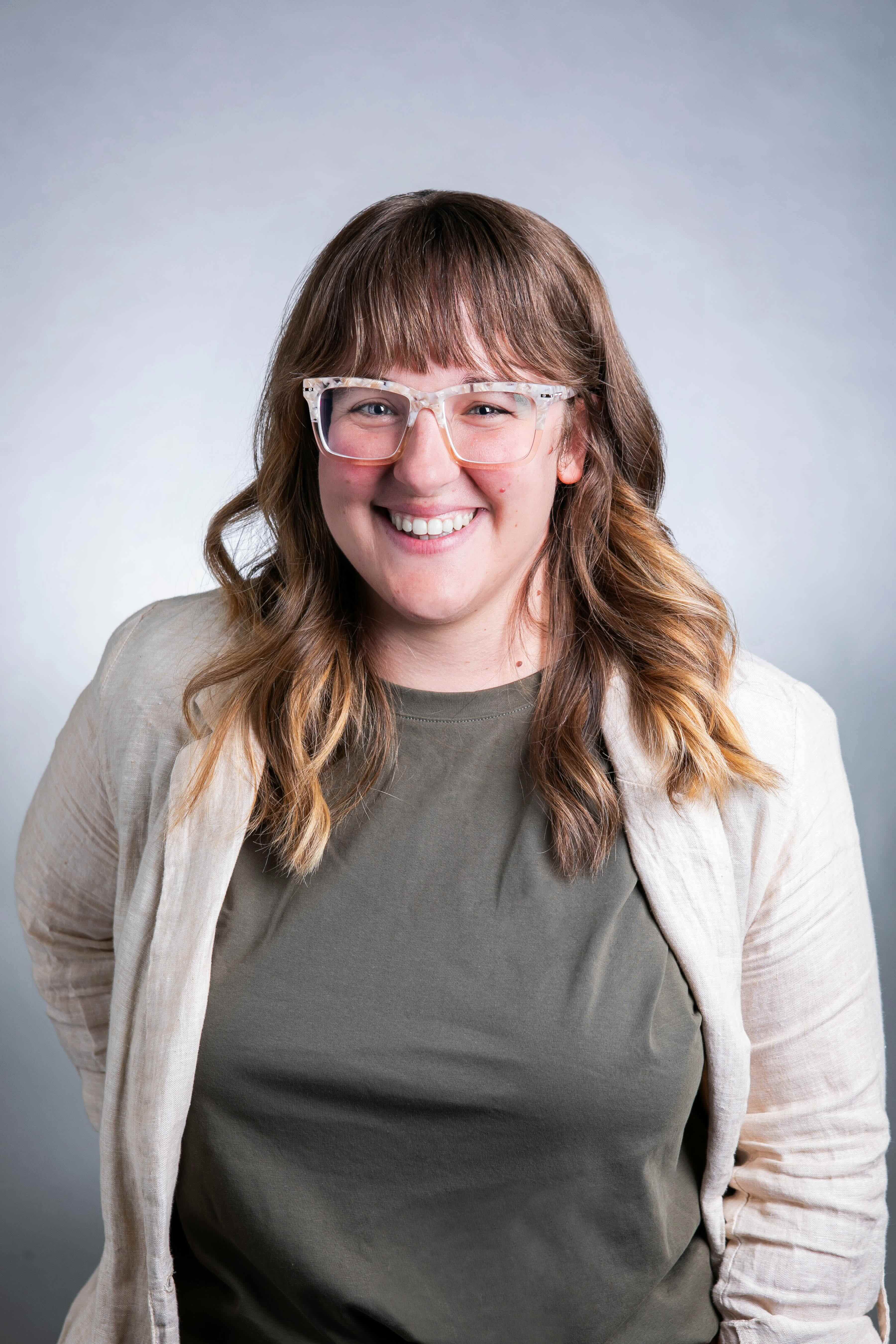The Simon Initiative Welcomes Lindsay Forman as K-12 Coordinator
By Sofia Baybekova
Lindsay Forman has joined the Simon Initiative as its new K-12 Coordinator. She began her new position in July of 2023 and has been working on a multitude of new projects since. Forman was excited to work at the Simon Initiative because she was intrigued by the potential to grow and amplify the existing connections between the innovative work happening at Carnegie Mellon University and Western Pennsylvania’s regional K-12 partners.
“There are many really brilliant researchers working at CMU, particularly doing work around learning and educational technology. And I think that as we continue to integrate technology into the world and education, the opportunities for leveraging technology for learning and teaching are enormous,” Forman shared.
In addition to supporting research initiatives and partnerships within the Simon Initiative, Forman is also a member of a broader subcommittee composed of K-12 outreach staff and faculty working on determining how to best coordinate and foster mutually beneficial partnerships.
Since July, Lindsay has been working with internal and external stakeholders to gain a deeper understanding of the needs that exist in engaging with K-12 schools and the university.
“That work has been really exciting because I think that any opportunity that exists to bring the barriers for connection down and can help create simpler opportunities for people to connect, the potential for deep and long-standing partnership increases exponentially. As we spend more time together connecting our network of K-12 folks, and spend more time talking to each other and sharing our opportunities, the easier those types of things become.”
One example of this work is the creation of Project Baseplate, an initiative out of the university’s pioneering Center for Transformational Play (CTP), with support from the Leonard Gelfand Center, the Simon Initiative, and Entertainment Technology Center (ETC). Project Baseplate aims to bring the Play Included Brick-by-Brick® program to children across the United States.
Forman has also been working extensively with the Leonard Gelfand Center on a variety of efforts to expand their digital tutoring opportunities, including an innovative digital learning center proctored by Gelfand Center student employees. In collaboration with the teacher, CMU students give targeted writing feedback to K-12 students, directly supporting their learning and reducing the burden on the classroom teacher. “It takes high school teachers forever to read and give meaningful feedback to projects,” Forman said. “With this initiative, we've been able to deputize CMU students to fill in that gap.”
Prior to joining the Simon Initiative Forman earned her M.S.Ed in Urban Education from the University of Pennsylvania in 2014, and taught middle school and high school STEAM courses in Philadelphia and Pittsburgh Public Schools.
In the fall of 2023, Forman hosted the kick-off for the Chief Science Officers: Leadership Training Institute, which brought to campus a delegation of local students and teachers who are interested in STEM opportunities and STEM innovation. The schools involved spanned districts across Southwestern Pennsylvania, including representatives from IU1, AIU, and Pittsburgh Public Schools. In addition to the leadership development skills taught by CSO, the teams visited the AI Maker Space, connected with the CMU admissions team, and learned from a panel of CMU faculty and graduate students including Josh Kangas, Amy Ogan, Nesra Yannier, Oliver Kroemer, and Alex Malz, who shared their journey to STEM and advice for the student leaders.
Another example of a strategic connection Forman has ushered in is establishing a relationship between a local area school district and CMU’s internal and external partners to help the district design and implement an innovative learning space within their school library. The district’s administrators toured CMU spaces including IDeATe, the Eberly Center for Teaching Excellence and Educational Innovation, and Sorrells Library to gain ideas and administrative support. They also met with many of the staff involved in creating and maintaining the CMU spaces, who offered guidance and inspiration for their project.
As Forman has established herself within the Simon Initiative, she has begun to implement the principles of learning engineering into every aspect of her work.
“The learning engineering model of being intentional about the design, intentional about the data collection, and then intentional about interpreting the data and making recommendations and changes has been really valuable to our overall approach about how we think about connecting with and engaging our K-12 partners. We want to make educated and data-based decisions in terms of the work that we're doing. And obviously, technology has allowed for that to be more efficient, more collaborative, and faster than it had been in the past.”
Forman’s main goal for the future is to continue building and fostering relationships with the robust educational networks that exist in our region in order to continue to connect CMU projects and opportunities to schools, teachers, and students.
“I think we are well on our way to figuring out a beneficial set of suggestions to improve and simplify ways for CMU’s internal stakeholders to continue to engage with K-12 while building capacity and providing support for those efforts. And at the same time, providing more opportunities and an obvious ‘front door’ for external K-12 stakeholders to reach out to and connect efficiently and effectively with what is happening at CMU. I'm really excited about beginning to implement some of the suggestions and opportunities and the future potential of that work.”
 Lindsay Forman
Lindsay Forman